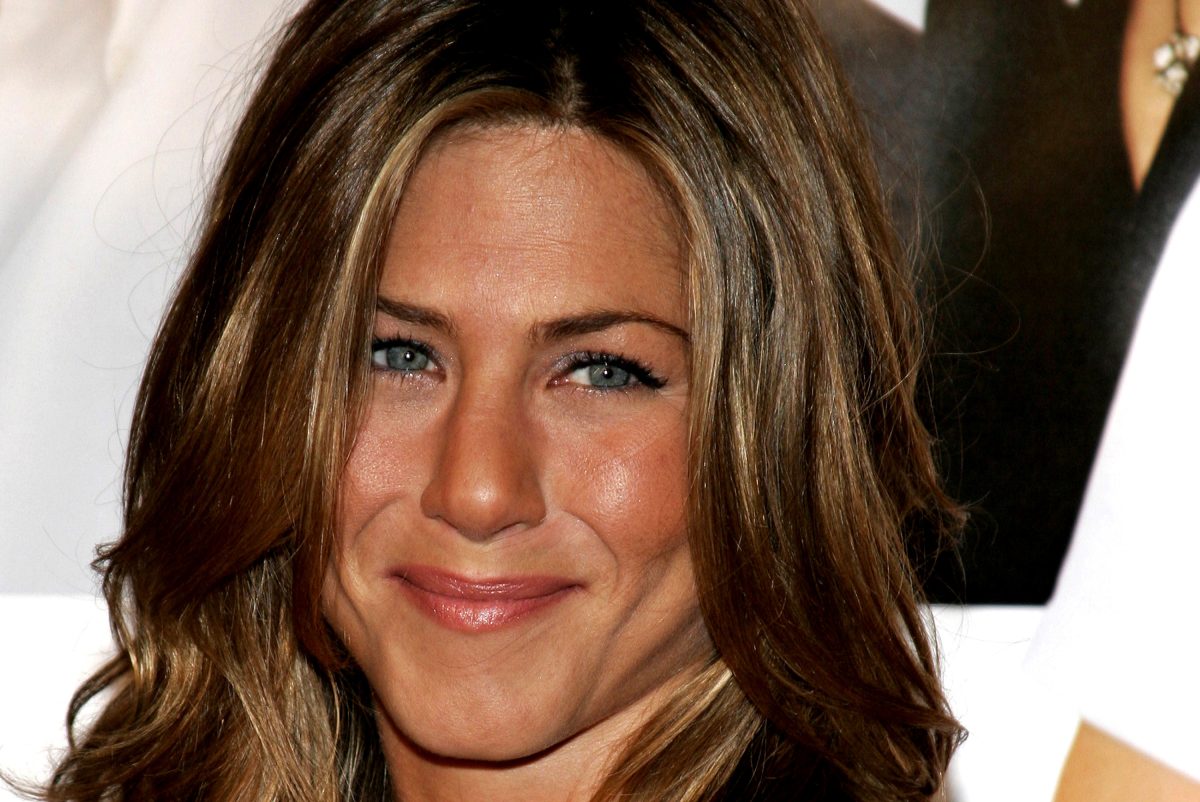Jennifer Aniston Says This One Trick Cured Her Insomnia
"If I don’t have a good night’s sleep, the day is just a walking punishment," the star said.

Up all night? You're not alone. Whether it's a symptom of long COVID, a byproduct of stress, or something else, 50-70 million adults in the U.S. have a sleep disorder, according to the American Sleep Association (ASA), which warns that "the public health consequences from sleep disorders and sleepiness are staggering." Now actor Jennifer Aniston is opening up about her struggles with insomnia—and the repercussions of this common sleep disorder. Fortunately, Aniston was able to overcome her insomnia, and is spreading the word about what helped her. Read on to find out how the star finally managed to get a good night's sleep.
READ THIS NEXT: If You Do This When You Sleep, Talk to Your Doctor, Study Says.
Insomnia can take different forms.

"Each night millions of people in the U.S. struggle to fall asleep or stay asleep," says the American Academy of Sleep Medicine Foundation (AASM Foundation). "For some this is only a brief problem. But for others, insomnia can become a severe, ongoing struggle."
WebMD defines acute insomnia as sleeplessness that lasts anywhere from one night to a few weeks; chronic insomnia happens at least three nights a week for a period of three months or more. In addition, there are two main types of the disorder: primary and secondary. Primary insomnia isn't linked to another health issue, while secondary insomnia can be chalked up to another condition. These may include asthma, depression, heartburn, or cancer. Other issues like pain, medication, and substance abuse can also cause insomnia, their experts say.
Aniston said "all sorts of things" happened as a result of her sleeplessness.

Speaking with Healthline about her experience with insomnia, Aniston said, "You start to notice, 'I'm lethargic, I don't want to exercise, I'm eating terrible, I have circles under my eyes,' you know all sorts of things start to happen, and it's just the effects of lack of sleep."
Indeed, the repercussions of insomnia can be severe, and even fatal. The Mayo Clinic warns about numerous complications that can result from a lack of sleep, which include both mental and physical conditions. "People with insomnia report a lower quality of life compared with people who are sleeping well," says the site. Specific effects can include "increased risk and severity of long-term diseases or conditions, such as high blood pressure and heart disease," mental health disorders such as depression and anxiety, and "slowed reaction time while driving and a higher risk of accidents."
In fact, research shows that insomnia is a major factor in fatalities caused by motor vehicle accidents, as well as other unintentional, deadly events.
For more health news sent directly to your inbox, sign up for our daily newsletter.
Aniston's sleep problems began in her 30s.

"If I don't have a good night's sleep, the day is just a walking punishment," Aniston lamented to Seize the Night and Day. "Everything is an effort, and my thoughts aren't very clear."
Aniston's other problems with sleep included sleepwalking and anxiety, the actress told People. "I think it started somewhere in my 30s or even earlier, but you just don't start to notice the effects of a lack of sleep when we're younger because we're so invincible," she said. "It began as something that I would just accept and then all of a sudden you realize the effects of your lack of sleep and how it affects your day and your work and your mind function and your physique."
Aniston sought medical help, and partnered with Seize the Night and Day. But she found that a nighttime routine was the secret weapon she needed in her battle against insomnia.
A nighttime routine made a big difference for the star.

People reports that creating a nighttime ritual made a big difference for Aniston. First she relaxes, does yoga or stretching exercises, and puts away her phone. Another tip? Making bedtime the same time each night, "which is challenging for us actors, because if we're on a movie, the schedule is all over the place," she told People.
"Bedtime routines help your brain separate the day from the night, clear your mind and body of the day's stresses, and relax into sleep," advises the Sleep Foundation. Yoga, an electronics break, and a regular bedtime are all recommended aspects of a routine, says the Foundation. And taking a bath, reading a book, or having a light bedtime snack (one that won't cause or aggravate digestive issues) can also be part of a healthy nighttime ritual that promotes a good night's sleep.
"There is a solution and answer to this frustrating and unfortunate thing," Aniston told Healthline. "You don't need to suffer."





















